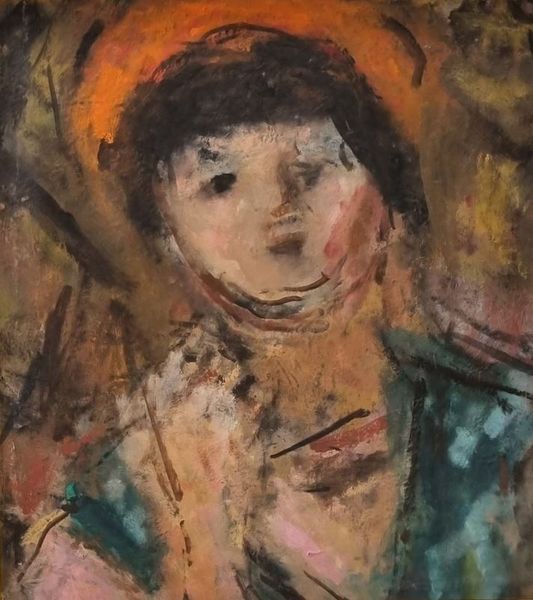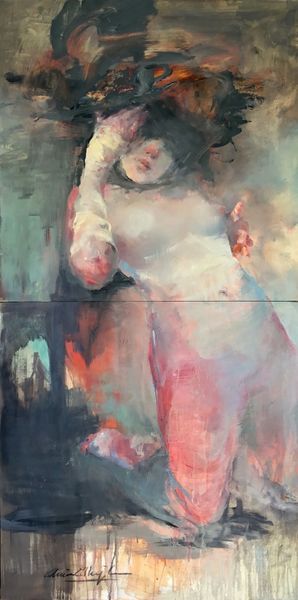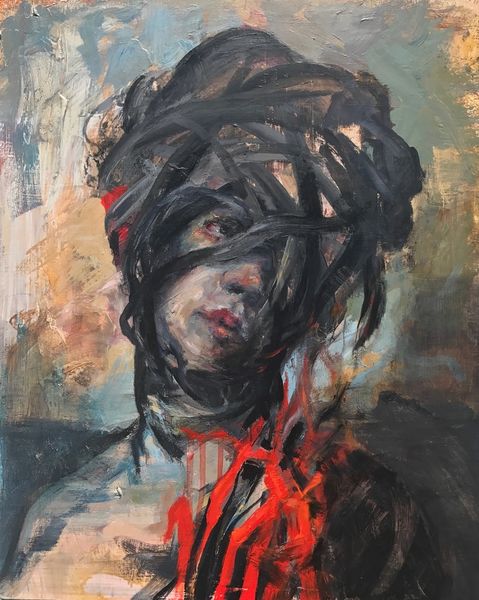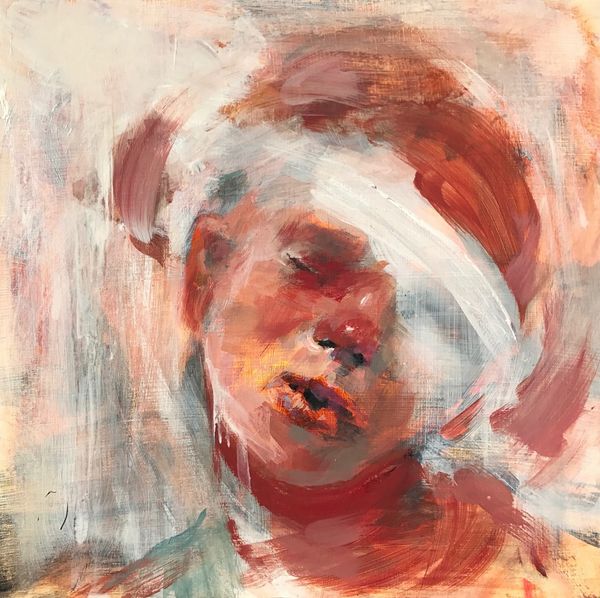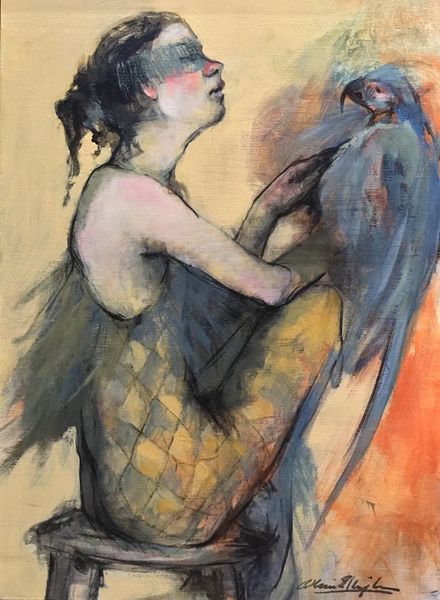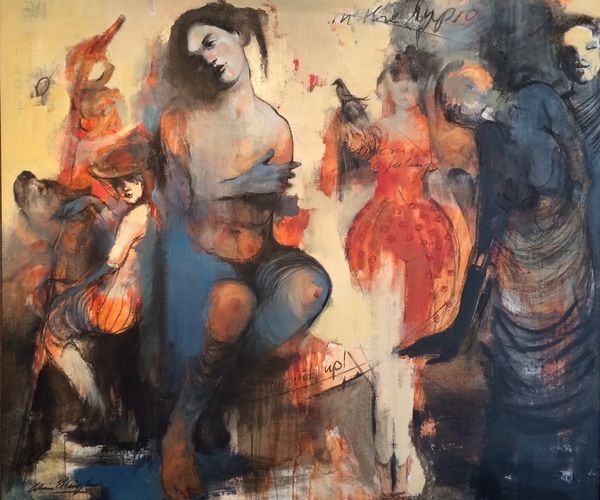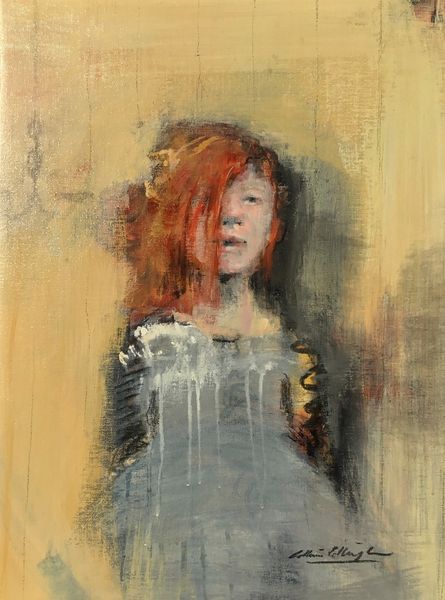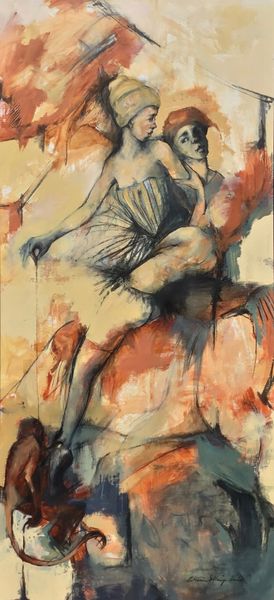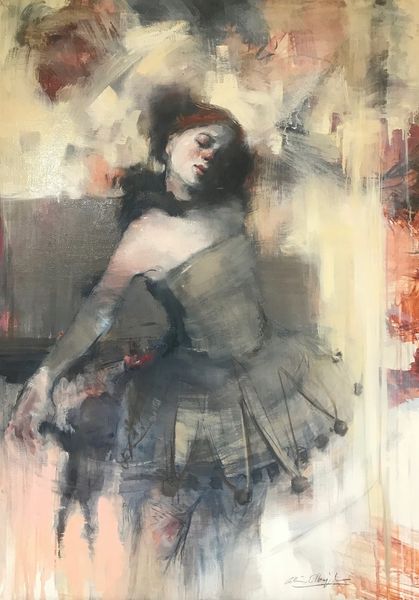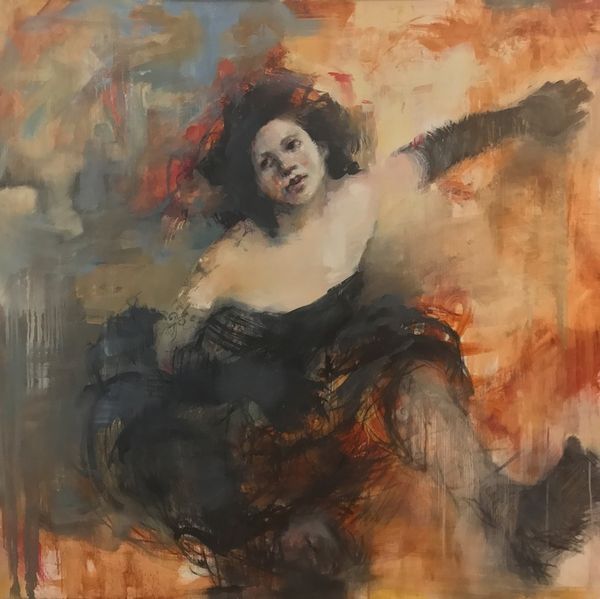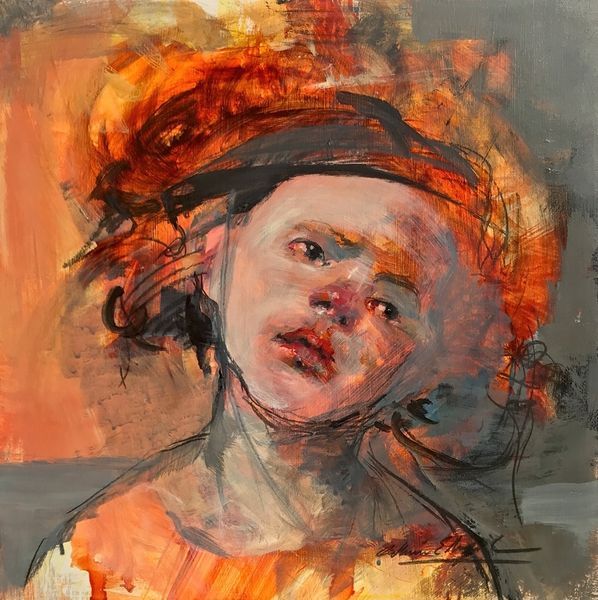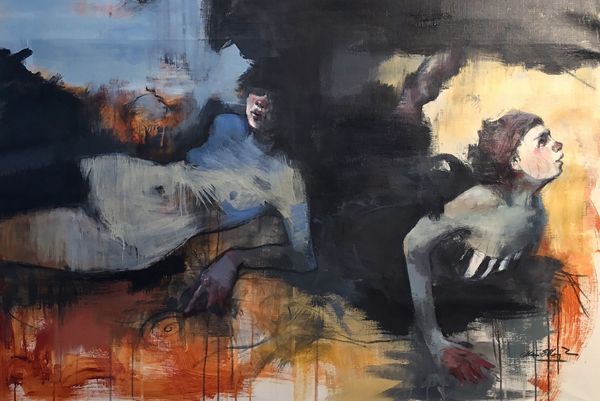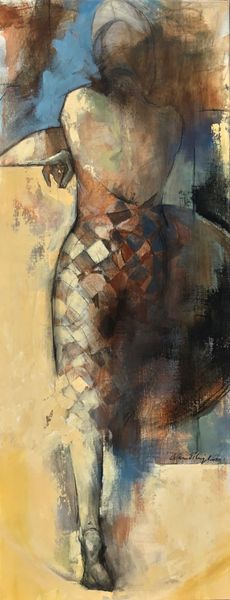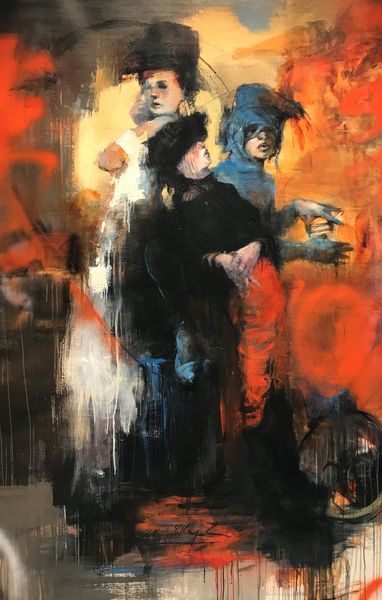
painting, oil-paint
#
portrait
#
figurative
#
abstract expressionism
#
abstract painting
#
painting
#
oil-paint
#
figuration
#
oil painting
#
fluid art
#
neo expressionist
#
neo-expressionism
#
abstraction
Copyright: Modern Artists: Artvee
Editor: This oil painting is called *Nocturnes in Red* by Cathrine Edlinger-Kunze. I find it quite arresting with its vivid colours and seemingly unfinished form. There’s an evocative quality about it… like a fading memory. What stands out to you as you look at this piece? Curator: The power of images lies in their ability to become repositories of cultural memory. Think about how we, as humans, for millennia, have used portraiture to preserve the likeness of someone, often imbued with meaning beyond the purely representational. Edlinger-Kunze's work touches on this very human impulse. The red tonalities suggest warmth, passion but also warning. Editor: Warning? In what sense? Curator: Consider how the "nocturne" motif, historically, is tied to dreams, the subconscious. But these can also be realms of fear. Here, that sense of foreboding is enhanced by the somewhat blurred, obscured quality of the figure, suggesting vulnerability, the fragile nature of memory, perhaps? Look how the blurred contours might represent something lurking within ourselves, made visible on the canvas. Editor: So, it's not just a portrait of someone, but perhaps of an emotion, or a state of mind? Curator: Precisely. Visual symbols evolve and gather layers of meaning throughout history and personal experiences. Perhaps this is the artist’s exploration of a state of mind we can relate to. Consider how our individual memory of things changes over time, is it possible that they will blur and fade until they completely transform? What do you take from this now? Editor: That art can speak about things we share as humans; like memory, and how we process different feelings, both individual and universal. Curator: Yes! Ultimately, images have power because they resonate with what's already inside of us.
